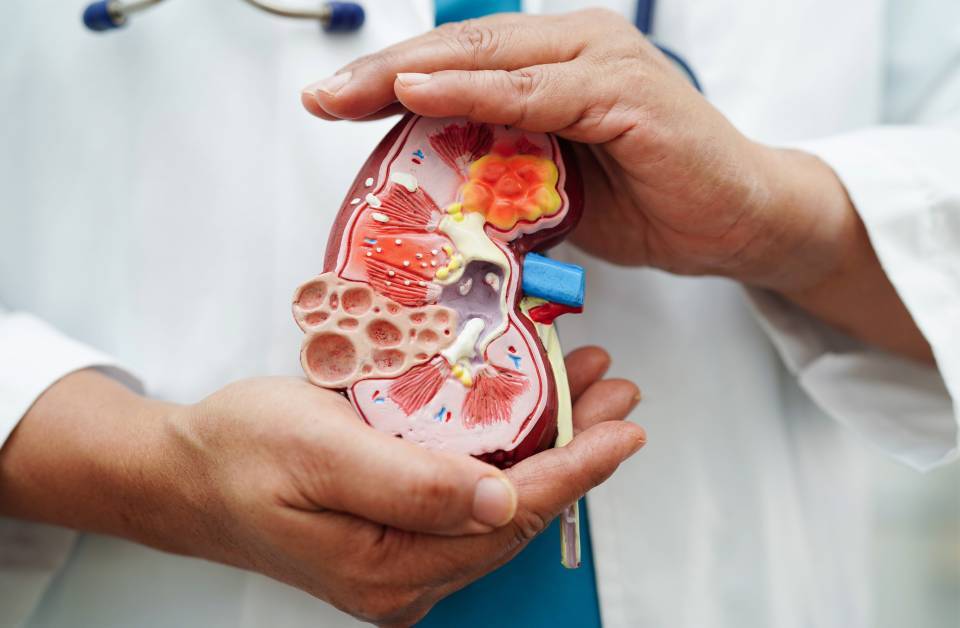The Systemic Vasculitis Research Group at IDIBAPS, led by Dr. Maria Cinta Cid, along with the Nephrology Department at Hospital Clínic, participated in the ADVOCATE study, which demonstrated the efficacy of the drug Avacopan as a substitute for corticosteroids in the treatment of ANCA-associated vasculitis.
Vasculitis associated with ANCA (anti-neutrophil cytoplasmic autoantibodies) is a group of severe autoimmune diseases that requires immunosuppressive treatment for prolonged periods of time. People with this disease have ANCA autoantibodies, which activate white blood cells. These attack the blood vessels, causing inflammation and other damage typical of the disease. To treat this type of vasculitis, glucocorticoids are often administered alongside other immunosuppressive drugs. They are initially taken at high doses, then later administered as maintenance treatment at moderate or low doses. These drugs cause several side effects in these patients and may promote infections, osteoporosis and cardiovascular diseases, among others.
In the last decade there have been several attempts to minimise corticosteroid exposure, and this trial offers two very relevant aspects in this regard.
On the one hand, it shows that the administration of Avacopan, a type of immunosuppressive drug (a complement C5a receptor inhibitor), is equivalent to corticosteroid treatment in terms of effectiveness. After 26 weeks of treatment, Avacopan was able to maintain the same results in terms of disease remission as corticosteroid doses administered according to current recommendations. Moreover, there is the the advantage of a significant reduction in toxicity compared to corticosteroids. At 52 weeks, remission of vasculitis is superior with Avacopan. Corticosteroid toxicity is reduced, and a more marked improvement in renal function and quality of life is achieved.
On the other hand, from a pathophysiological point of view, the study shows that part of the immune system (the complement system) is activated during the disease. This pathway had been discarded until the results of a study in an animal model of vasculitis suggested that it might play a role. The confirmation of the activation of this mechanism in vasculitis opens new perspectives for treatment, not only with Avacopan but also with other types of drugs.
The systemic vasculitis research group, particularly Dr Espígol, Dr Ríos and Dr A. Penatti, in conjunction with the Nephrology Department, with Dr Quintana and Dr Blasco, have led Hospital Clínic’s participation in this phase 3 trial, which was randomised, double-blind and placebo-controlled. Dr Hernández-Rodríguez and Dr Prieto have also provided support in identifying potential patients.
This data represents considerable progress in management of this type of vasculitis, which is a very rare and little-studied disease. Only a few years ago, it was difficult to carry out clinical trials on this condition because of the low prevalence.
However, some questions remain to be answered, such as what the optimal duration of treatment is, or whether it is equally effective in all subtypes of vasculitis, as this group of diseases is very heterogeneous.
Information documented by: Dr Maria Cinta Cid, head of the Systemic Vasculitis Research Group at IDIBAPS.




